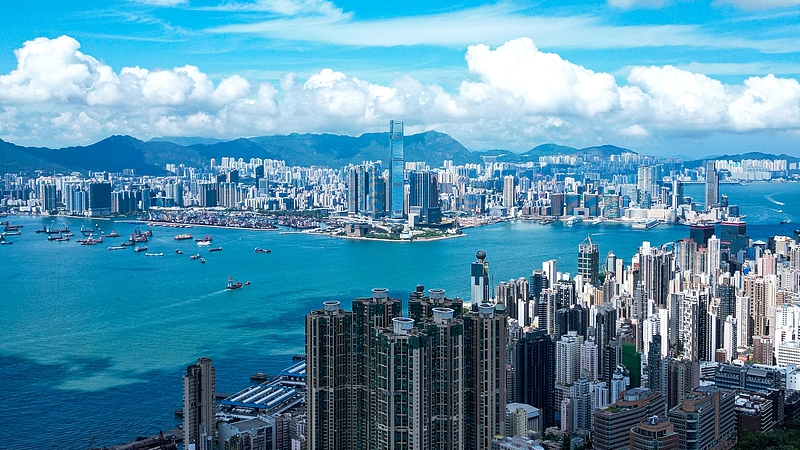As the Hong Kong Special Administrative Region marks the 28th anniversary of their return to China, the “One Country, Two Systems” policy continues to define the city’s unique role in national and global affairs. In the second part of CGTN’s “Voices from Hong Kong” commentary series, Lau Siu-kai, professor emeritus of sociology at the Chinese University of Hong Kong and consultant to the Chinese Association of Hong Kong and Macao Studies, reflects on how this framework bolsters Hong Kong’s strategic edge.
Since 1997, the high degree of autonomy guaranteed by the policy has enabled Hong Kong to preserve its common law system, maintain an open economy and operate as a separate customs territory. Lau argues that these features have positioned the city as a vital bridge for capital, talent and best practices between the Chinese mainland and international markets.
By safeguarding free-market principles and rule-of-law standards, Hong Kong has become a cornerstone in China’s broader development agenda. Lau emphasizes that the city’s capacity to pilot reforms, host global financial services and cultivate innovation ecosystems enriches the nation’s opening-up strategy.
Looking forward, he believes that upholding the core tenets of “One Country, Two Systems” will keep Hong Kong at the forefront of regional and global opportunities. As China advances its national goals, the city’s contributions—from cultural exchange to sustainable finance—are set to deepen under this framework.
Over the past 28 years, “One Country, Two Systems” has proven more than a governance model—it’s a catalyst for Hong Kong to sharpen its competitive edge and drive China’s evolving role on the world stage.
Reference(s):
Lau Siu-kai: 'One Country, Two Systems' bolsters HK's strategic edge
cgtn.com




